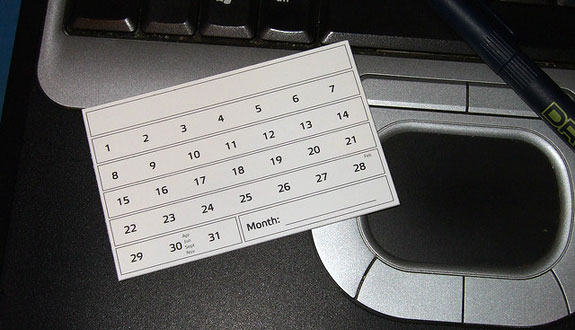The sun is shining, the grass is green, and your brain has just gone into full panic mode. You have taken your most recent practice LSAT and—shock and horror!—your score is worse than before. But before you start sweating buckets or running for the hills to live out your days with the wild sheep in the Alps, take a big step back and consider how much your LSAT score actually dropped.
A Quick Look At How the LSAT Is Scored
Despite the LSAT being a remarkably consistent test, you’re not going to get the exact same score every time (it’s an LSAC-driven concept called a “score band,” which is just a fancy term for what normal people know as a margin of error). Basically, an interval of 1-2 points up or down is pretty standard, for a number of reasons; there may be a few more longer questions on your most recent test than on the ones before, or you misread a question. This applies no matter how well you know your stuff.
All in all, it’s important to understand that unless you’re a pure LSAT robot with your testing prowess and logical skills being honed to perfection in the ultimate pre-law lab full of soft non-corded earplugs and 20 oz water bottles, you are going to drop a point or two every now and then. It’s humanity, baby. Carry on.
Sign up to get expert tips and exclusive invites to free LSAT classes and law school admissions workshops!
What To Do When Your LSAT Score Drops
But what if your score drop is more than a few points? If that’s the case, it’s time to assess what actually changed from your previous practice tests to now. The first thing to check is if the drop came from a change in content. The appropriate line of attack to understand this is by reviewing your LSAT practice tests.
Look for Patterns
Did you miss a ton of questions of the same type? Were all your errors from a question or game type you just learned? If the answer to either of these questions is yes, then the problem that occurred was most likely a lack of complete mastery of a particular concept. Spend the interim between now and your next practice test doing focused drills to bolster your knowledge on that particular skill or skills, and approach your next practice test with the confidence of an LSAT lover who knows flaws like the back of their hand. If you need more help, check out our schedule of free LSAT classes!
But what if that score drop didn’t come from any one thing in particular, but just a general inability to put everything together that day? Now it’s time to zoom out and look at some external factors.
Look at External Factors
Were you feeling well that day? Were you adjusting to taking a test at a different time, or after a stressful week? Because we are all human and not the aforementioned LSAT robot, external factors do play a role in how we perform on the LSAT. To deal with this, if you have noticed parts of your external life having an obvious effect on your LSAT studying, focus on minimizing, not eliminating, those effects. For example, if you tend to be very tired after work, and that’s when you take practice tests, try to restructure your time so you can take practice tests when your brain is a bit more fresh. Creating an effective LSAT study schedule is a crucial part of the process—use our free generator to build one with your work and/or school schedule in mind!
Be Kind to Yourself
Most importantly, don’t beat yourself up about any of this. You are a real person taking the LSAT with real-life external considerations, and all of these are valid.
Finally, note how often this situation has been happening to you. If it’s just this week, or this particular test, follow the strategies noted in the last paragraph and carry on. But if you’re noticing a repeated pattern of score decreases, a particularly large drop in the recent past, or are hitting a plateau, it may be a warning sign of burnout.
Beware Burnout
Burnout, put simply and unscientifically, happens when your brain is being overworked to the point that it stops taking in and processing information efficiently. Practically speaking, this may show up as taking much longer than normal to master LSAT skills or not being able to process test questions and answer them.
Outside of the LSAT, it may manifest as fatigue, brain fog, or a lack of interest or energy for other things. Burnout is not only bad for you personally, but it could also really hurt your LSAT score, and regardless is not worth the sacrifice or the length of time it takes to recover.
If you start seeing signs of burnout, stop your studying, period, full stop. Close the book, get some sunshine, and don’t come back to it until you’re refreshed. While this may seem scary and counterintuitive, time away from LSAT practice questions allows your brain to recover and stops burnout in its tracks. Remember, LSAT studying is an ultramarathon, not the 60-meter hurdles.
So to recap, what should you do if your practice test score goes down?
- See how far your score has gone down
- Assess whether it’s a problem of content or external factors
- Resolve appropriately.
And do each of these things with the mindset that the LSAT is important, but you as a person are important-er (that’s definitely a word and I definitely did not just make that up). Your score matters, but you—your health, your mental well-being, and your love of logic—matter more.



